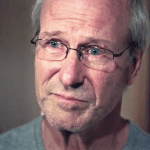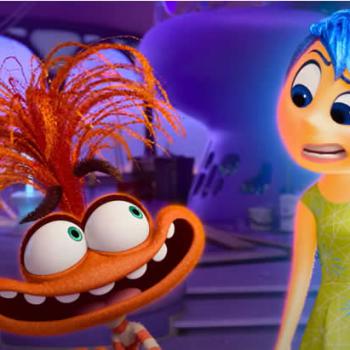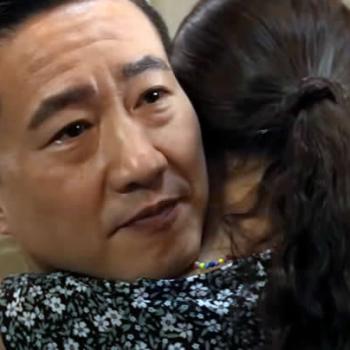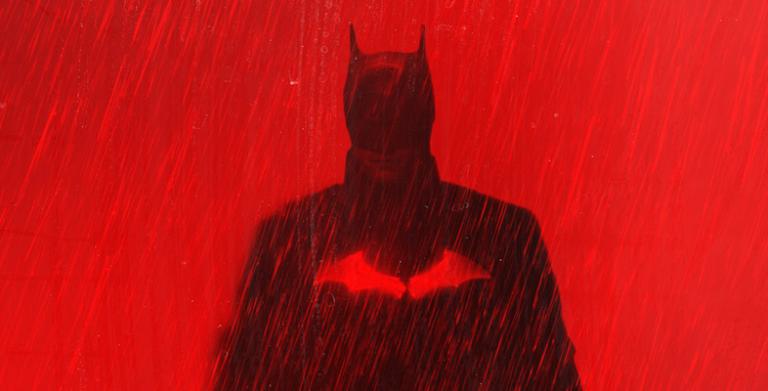
Sometimes, you have to wonder why anyone lives in Gotham City.
Oh, it wasn’t always so bleak. Back in the 1960s, when Adam West’s version of Batman was patrolling the streets, the place looked kind of fun. But ever since, it seems, the city’s gotten bleaker and more dismal with each passing decade. Criminal lowlifes have grown more violent. Costumed kingpins have grown more unhinged. It’s a town where night seems to last 22 hours; where it’s always Halloween.
The Dark Knight has gotten darker, as well. Has he grown more grim in response to Gotham? Or is Gotham, in a way, following Batman’s lead?
It’s a fair question, and one which The Batman—the darkest, grimmest Batman pic yet—addresses at an angle.
The Batman is good—quite good—but it doesn’t feel like a traditional superhero movie. Though rated PG-13, it squeaks into the rating by the barest of margins (as you can see in my Plugged In review). It has a film noir vibe, and Batman gets to showcase his skills as a detective as much as his talents as a superhero. It’s pretty cool to see: The comics have long called him “The World’s Greatest Detective,” but we’ve not seen much of that on screen ‘til now.
But, like any film-noir character worth his salt, Batman is jaded and tired. He’s only a shade lighter than the dark streets he patrols.
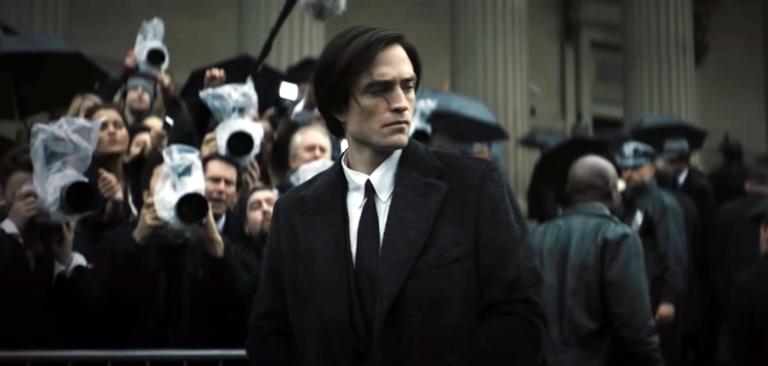
The Hero Gotham Deserves?
“I wish I could say I’m making a difference,” Batman says. “But I don’t know.” Every criminal he takes down seems to spawn two more. For every robbery or murder he stops, others are committed just a block or two away. “I can’t be everywhere,” he says.
So Batman uses a certain sleight of hand to make it seem like he could be. The Bat Signal puts the city’s criminal element on notice that the vigilante is out there, somewhere. He could be in any dark nook or inky-black alley. “They say I’m hiding in the shadows,” Batman tells us. “But I am the shadows.”
Through those shadows, he exacts brutal justice. And when a bad guy asks him who he is, the Batman answers simply: “I am vengeance.”
Meanwhile Bruce Wayne, Batman’s alter-ego, is far from the billionaire playboy we’ve seen in other films. He’s a fractured man teetering atop a broken empire. Alfred, his butler, cautions him that it could all be gone soon if Bruce doesn’t start taking more interest in it. But Bruce doesn’t care. For him, life is all about Batman these days. It’s all about vengeance.
But then the movie unveils Batman’s prime antagonist this time around: A masked terrorist with a penchant for riddles and an axe to grind against Gotham’ leaders. He’s out for vengeance, too—to punish the city’s corrupt politicians and hypocritical benefactors for crimes committed long ago. He wants them to pay for their sins in blood. With their lives.
The Riddler (because, of course, that’s who this terrorist is) couches his crusade in spiritual lingo—sounding like a thundering Old Testament prophet determined to rain horrors down from the sky. He talks about cleansing the city of its collective sins. And he thinks that Batman would both approve and maybe even help.
Batman does not, of course. But it’s interesting: So often, Batman’s best villains reflect the Dark Knight in some way—two sides of the same coin, as Two-Face (another Batman bad guy) might say. And as the movie plows on, those similarities only seem to grow. And that forces him into a powerful reckoning with himself and his legacy.
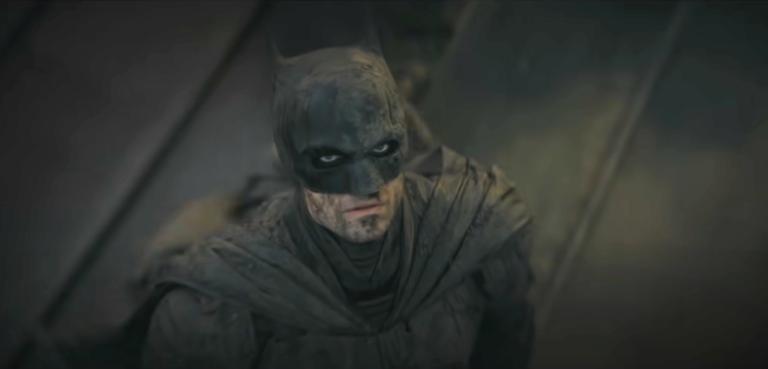
Critical Crusader
Throughout the film, we hear an interesting drumbeat directed not just at Batman, but at Bruce Wayne, too. And maybe even the city of Gotham itself. You could do more. You could be better.
Vengeance, it seems, just isn’t enough.
When I heard Batman talk about vengeance in the movie’s opening minutes, I thought of Romans 12:19, where we’re reminded that vengeance is the province of God, and God alone.
But if the Bible says it’s not particularly “heroic” to engage in vengeance, what is a hero like Batman to do?
The Bible itself goes on to tell us.
“To the contrary,” Romans 12:20-21 reads in part, “’if your enemy is hungry, feed him; if he is thirsty, give him something to drink … Do not overcome by evil, but overcome evil with good.”
The whole of Romans Chapter 12 is about becoming a “living sacrifice” to God—to give yourself to something bigger and better than yourself. When you look at the character Batman, that’s what he’s attempted to do (in a way) for his whole career—trying to make the city a little bit better. But he didn’t go far enough. The Bible, and the movie, make that clear. Heroes shouldn’t just beat up people: They should offer a hand up. Yes, they should mete out justice. But they should also offer hope and love, too.
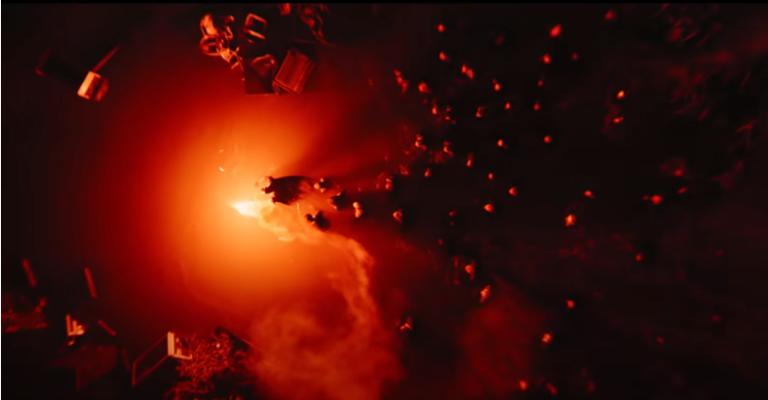
A Better Way Forward?
Sometimes we have to fight for what’s right. Sometimes we have to push back. The world offers plenty of proof of that. And Batman lives in a fallen world, just as we all do.
But often, the only pathway to meaningful change runs in a different direction—not just punishing the bad guys, but creating conditions where not so many of them go bad in the first place.
Vengeance is a worldly solution to evil. But the Apostle Paul, again in Romans chapter 12, reminds us to “not be conformed to this world, but be transformed by the renewal of your mind … Rejoice in hope, be patient in tribulation, be constant in prayer.”
Paul knew what he was talking about. After all, the Roman people he wrote to lived in a world not so unlike Gotham City—a place of crime and corruption, and where the concept of vengeance was personified in a god named Ultio (which means “vengeance” in Latin). How do you change a society like that? By changing the rules first.
Batman will never stop using the shadows to his advantage, of course. It’s part of who he is. But in The Batman, we see glimmers of a character that goes beyond vengeance—one that’s trying to change the rules in Gotham. That’s an unexpected, welcome turn toward the light in such a dark movie. Perhaps it’s fitting that the film ends as the sun rises, welcoming a new day.



